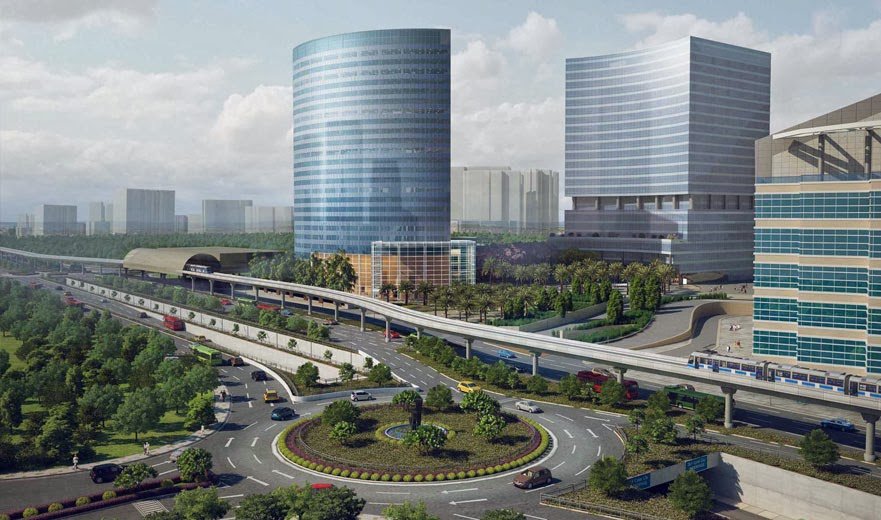India’s rising prominence on the global stage has been solidified through its hosting of numerous G20 meetings across various cities. As an expert in the real estate field. I am excited to delve into the profound effects of these gatherings on India’s real estate sector. The forthcoming G20 meeting scheduled for September 9-10 in Delhi presents. A unique opportunity to explore how these high-level international conferences can shape the real estate landscape. Over the years, India has undergone remarkable transformations in its real estate sector. Particularly in the Delhi National Capital Region (NCR), owing to its active engagement with the G20 community.
Economic Stability and Its Ripple Effect on Real Estate
One of the most noteworthy indirect benefits of G20 meetings for India’s real estate sector is the promotion of global economic stability. The G20 nations frequently collaborate on policies to stabilize the global economy. Creating a favorable climate for investment and growth. This economic stability, in turn, ripples through real estate markets. Rendering them more appealing to both domestic and international investors. When investors perceive economic stability. They are more inclined to invest in real estate, stimulating an upswing in property values.

Foreign Investment and Property Valuation
G20 meetings serve as a platform for discussions on investment and trade policies, potentially paving the way for increased foreign direct investment (FDI) in India’s real estate markets. Foreign investors are inherently drawn to stable economies, and G20 meetings serve as a testament to India’s unwavering commitment to economic stability. This influx of FDI can significantly elevate property values in the country, making real estate investment an even more attractive prospect.
Infrastructure Development and Its Impact on Real Estate
Infrastructure development stands out as a focal point for many G20 initiatives. Investments in infrastructure can catalyze an increase in construction projects, thus fueling demand for real estate. Enhanced infrastructure, such as transportation networks and utilities, amplifies the appeal of specific regions for real estate investment. Areas like Gurugram, boasting modern infrastructure and international connectivity, become particularly enticing options for real estate investors.
Harmonization of Regulations
G20 nations consistently collaborate on the harmonization of regulations and standards pertaining to various facets of the economy, including real estate. This harmonization simplifies the regulatory landscape for real estate investment and development. When regulations harmonize across borders, investors find it easier to navigate international markets, ultimately facilitating cross-border investments in real estate.
Sustainable Development and the Emergence of Green Real Estate
G20 meetings often underscore sustainability and climate change, leading to policies that promote green building practices, energy efficiency, and sustainable urban development. Within the real estate sector, this translates into an escalating emphasis on environmentally friendly construction and design. Sustainable real estate practices not only benefit the environment but also lure investors who prioritize sustainable investments.
Financial Market Stability and Its Indirect Influence on Real Estate
Endeavors to stabilize financial markets constitute another pivotal facet of G20 discussions. Stable financial markets, albeit indirectly, bolster the real estate sector by minimizing the likelihood of market crashes and ensuring access to financing for property acquisitions. When financial markets exhibit resilience, real estate investors can make informed decisions and have unwavering confidence in the stability of their investments.
Technology and Innovation Reshaping Real Estate
Collaboration among G20 nations in the realm of technology and innovation can catalyze advancements in the real estate sector. The development of smart cities, digital real estate transactions, and innovative property management systems exemplify how technology can revolutionize real estate. These innovations hold the potential to enhance the efficiency of real estate transactions and elevate the overall real estate experience.
Exchange of Best Practices
G20 meetings stand as a forum for the exchange of best practices in real estate regulation, taxation, and development. Nations have the opportunity to glean insights from each other’s successes and learn from shared challenges, fostering improvements within their own real estate sectors. This knowledge and experience exchange can lead to more efficient and transparent real estate markets.
Risk Mitigation Strategies for Real Estate Investments
Discussions concerning risk management and financial stability during G20 meetings can instigate policies that mitigate risks in real estate investments. These policies offer a safety net for investors, rendering real estate a more secure investment option. This, in turn, magnetizes more investors to the real estate sector, further propelling its growth.
Networking and Collaboration Opportunities
G20 gatherings bring together leaders, policymakers, and professionals from diverse countries, creating an environment ripe for networking among, real estate professionals and opening doors for potential cross-border collaborations. Real estate, being a global market, can benefit greatly from the connections forged at G20 meetings, potentially resulting in fruitful partnerships and investments.
In Conclusion
In conclusion, India’s hosting of G20 meetings has exerted a transformative influence on its real estate sector, augmenting the nation’s standing on the global stage and attracting investments that bolster its economic confidence. The real estate sector, especially in regions like Delhi NCR, has undergone substantial growth, with luxury properties assuming greater prominence. Anticipated increases in demand for commercial properties, encompassing office spaces and residential units, are poised to benefit corporate hubs such as Gurugram.
India’s active participation in G20 meetings has underscored its unwavering commitment to economic stability, sustainable development, and regulatory harmonization. all of which cast positive ripples across the real estate market. The real estate sector stands on the precipice of growth and innovation, courtesy of collaborations, policy enhancements, and heightened investor confidence facilitated by the G20 platform.
As a seasoned real estate expert. I perceive the immense potential for India’s real estate sector to flourish. Even further through sustained engagement with the G20 community. With the imminent G20 meeting in Delhi. India possesses a unique opportunity to showcase its real estate potential on the global stage. thereby attracting an even greater influx of investments into its burgeoning real estate markets.




